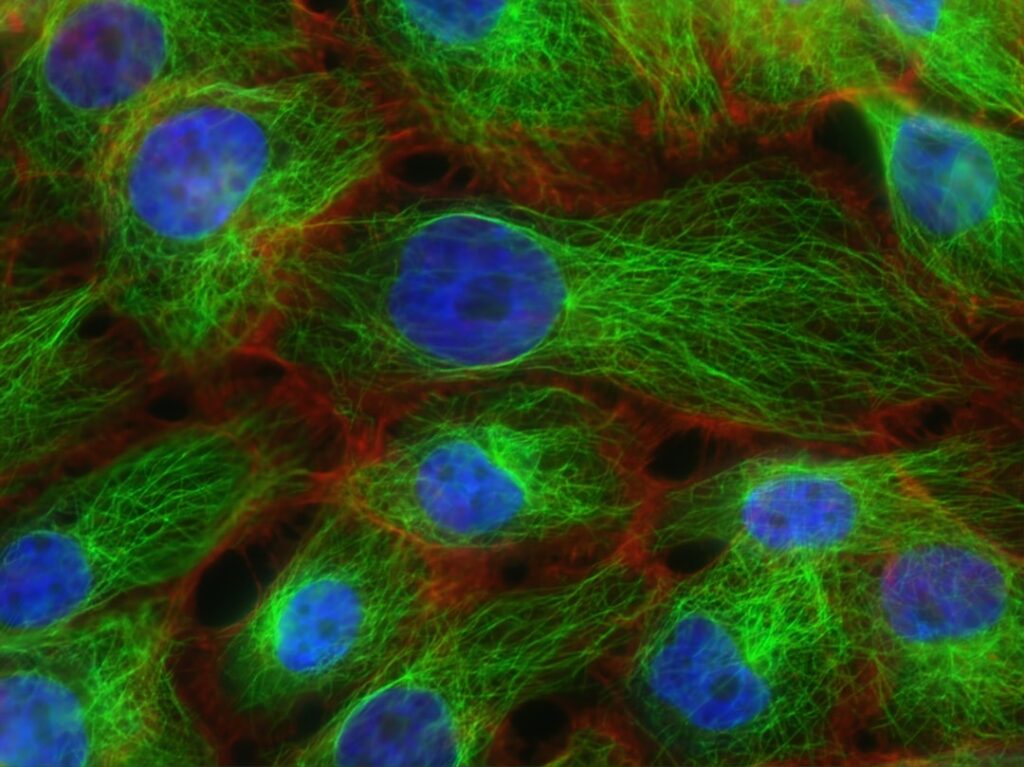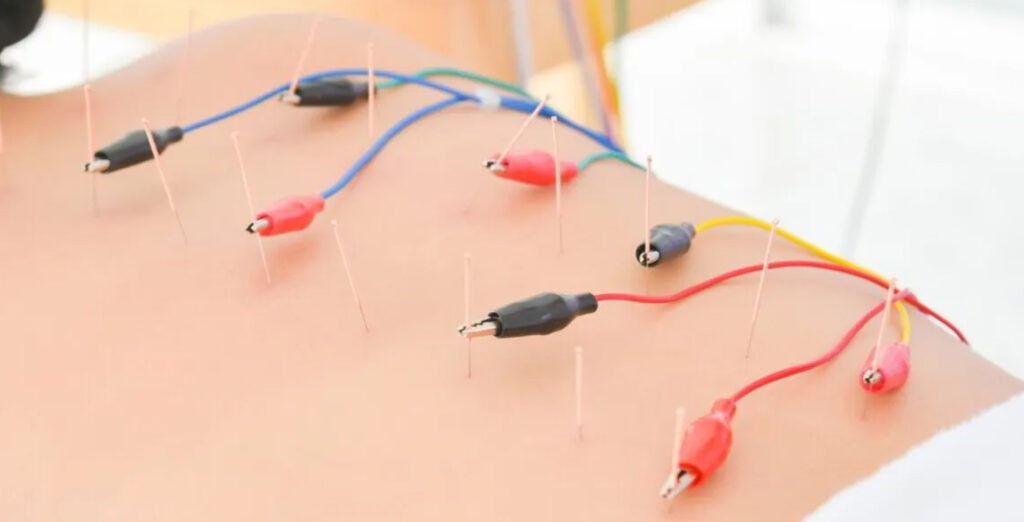by urban-acupuncture | Sep 14, 2024 | Community, Event, Holistic Health
 Join Raj and dig deeper into the 7 chakras, connecting with each of their symbols, elements, colors, petals, and more. Explore different healing techniques and learn various methods to open, clear, and balance each chakra. With her expert guidance, Raj will guide you through Mudras and teach you how to activate your chakras with special hand positions. These hand positions called Hasta-Mudra send energy to specific chakras. Additionally, you will learn to activate your endocrine glands and organs with color and crystal healing. Raj will also cover aromatherapy and how to integrate essential oils to effectively balance and align your chakras.
Join Raj and dig deeper into the 7 chakras, connecting with each of their symbols, elements, colors, petals, and more. Explore different healing techniques and learn various methods to open, clear, and balance each chakra. With her expert guidance, Raj will guide you through Mudras and teach you how to activate your chakras with special hand positions. These hand positions called Hasta-Mudra send energy to specific chakras. Additionally, you will learn to activate your endocrine glands and organs with color and crystal healing. Raj will also cover aromatherapy and how to integrate essential oils to effectively balance and align your chakras.
No prerequisite class is required. Anyone can benefit from the knowledge gained by attending a Chakra Workshop. Participants who learn to balance their energy centers can:
1. Improve physical & mental well-being
2. Enhance intuition for spiritual growth
3. Connect to inner wisdom
4. Build stress management & relaxation skills
5. Find inner peace & fulfillment and
6. Develop tools for self-healing and personal empowerment
Limited spots available. Book your spot now by clicking the link below (or call the office) and embark on a transformative experience on Sunday, September 22nd from 2:00-4:30 pm.
Energy exchange: $108 or EARLY BIRD (until September 16th) $98
CLICK HERE to Register for Journey into the 7 Chakras Workshop
Contact Urban Acupuncture Center in Columbus, OH For More Information
For more information about how acupuncture, massage therapy, electroacupuncture and other alternative healing treatments can help you, please contact the Urban Acupuncture Center Board Certified Licensed Acupuncturist’s team at Indianola Ave, Columbus, Ohio (Clintonville) (614) 725-2488 or click here. Taking new patients in and around greater Columbus, Ohio.
by urban-acupuncture | Sep 11, 2024 | Treatments
 The term Reiki comes from the Japanese words “rei” and “ki”. Rei means universal and ki means vital life force. Put them together and what you have is Reiki–a universal and vital life force. Reiki is a beneficial healing modality that is utilized for health and wellness. It is based on energetic principles and practiced globally in many hospitals, medical settings, and private practices. It can help to open or free chakras that are blocked (which causes other chakras to become over-active), and restore a person’s natural balance. When all chakras are open and balanced, the mind, body, and spiritual self are healthier.
The term Reiki comes from the Japanese words “rei” and “ki”. Rei means universal and ki means vital life force. Put them together and what you have is Reiki–a universal and vital life force. Reiki is a beneficial healing modality that is utilized for health and wellness. It is based on energetic principles and practiced globally in many hospitals, medical settings, and private practices. It can help to open or free chakras that are blocked (which causes other chakras to become over-active), and restore a person’s natural balance. When all chakras are open and balanced, the mind, body, and spiritual self are healthier.
Research shows that among other health benefits, Reiki can speed up post-operative healing, relieve pain, reduce stress, ease anxiety, lower blood pressure, and improve overall quality of life.
Additionally, the 5 principles of Reiki can be incorporated into your daily life so that you can have positive, grounding energy ALL DAY, EVERY DAY.
The 5 Principles of REIKI
1. Stop worrying
2. Don’t be angry
3. Be humble
4. Be kind
5. Show honesty
“Just for today,” is how Reiki principles start, so why not start your weekend with Beth and focus on how to be your best every day.
SCHEDULE NOW
Contact Urban Acupuncture Center in Columbus, OH For More Information
For more information about how acupuncture, massage therapy, electroacupuncture and other alternative healing treatments can help you, please contact the Urban Acupuncture Center Board Certified Licensed Acupuncturist’s team at Indianola Ave, Columbus, Ohio (Clintonville) (614) 725-2488 or click here. Taking new patients in and around greater Columbus, Ohio.
by urban-acupuncture | Sep 11, 2024 | Acupuncture Columbus, Acupuncturists, Community, Treatments
This Saturday is Bring-a-friend Night
 This event is designed for you, our return clients to introduce a friend, family member or co-worker who’s never been before!
This event is designed for you, our return clients to introduce a friend, family member or co-worker who’s never been before!
We will have both Steve & Jeff here on Saturday, September 14th from 6:00 – 8:00 p.m. Having 2 acupuncturists together allows them to give full attention to both individuals concurrently. Sign up by calling the office or clicking the link below. When you sign up via the stripe link below, we will contact you for the name of your friend. We will automatically sign you up (since you’re in our system). The cost is $50 per pair.
We only have a few spots left, so get them while they last! As always, if you have questions, feel free to call us @ (614-725-2488.
CLICK HERE TO SIGN UP
Contact Urban Acupuncture Center in Columbus, OH For More Information
For more information about how acupuncture, massage therapy, electroacupuncture and other alternative healing treatments can help you, please contact the Urban Acupuncture Center Board Certified Licensed Acupuncturist’s team at Indianola Ave, Columbus, Ohio (Clintonville) (614) 725-2488 or click here. Taking new patients in and around greater Columbus, Ohio.
by urban-acupuncture | Sep 5, 2024 | Acupuncture Columbus
Electroacupuncture Can Help Enhance Tissue Regeneration
 Tissue regeneration is a vital process for healing and recovery, and recent advances in medical technology have highlighted the potential of electroacupuncture to enhance this process. One of the key mechanisms by which electroacupuncture aids in tissue regeneration is through the release of mesenchymal stem cells (MSCs) into the bloodstream.
Tissue regeneration is a vital process for healing and recovery, and recent advances in medical technology have highlighted the potential of electroacupuncture to enhance this process. One of the key mechanisms by which electroacupuncture aids in tissue regeneration is through the release of mesenchymal stem cells (MSCs) into the bloodstream.
How Electroacupuncture Works
Electroacupuncture involves the application of electrical stimulation through acupuncture needles inserted at specific points on the body. This technique enhances the traditional benefits of acupuncture by adding electrical impulses, which can amplify the therapeutic effects.
Mesenchymal Stem Cells (MSCs)
MSCs are a type of stem cell found in the bone marrow, fat tissue, and other parts of the body. These cells have the remarkable ability to differentiate into various types of tissues, including bone, cartilage, muscle, and fat cells. Their regenerative capabilities make them crucial in repairing damaged tissues and reducing inflammation.
Triggering MSC Release
Research indicates that electroacupuncture can stimulate the body to release MSCs into the bloodstream. This mobilization of stem cells plays a significant role in tissue repair and regeneration. When MSCs are released, they travel to the site of injury or damage, where they contribute to the healing process by differentiating into the required tissue types and secreting bioactive molecules that promote tissue repair.
Benefits for Tissue Regeneration and Pain Relief
- Enhanced Healing: The release of MSCs accelerates the regeneration of damaged tissues, leading to faster and more effective healing.
- Pain Reduction: By promoting tissue repair and reducing inflammation, electroacupuncture can help alleviate injury-induced pain.
- Non-Invasive Treatment: Electroacupuncture offers a non-invasive alternative to surgical interventions, making it a favorable option for patients seeking pain relief and tissue regeneration.
Applications
Electroacupuncture with MSC release has shown promise in various medical fields, including:
- Orthopedics: Enhancing recovery from bone fractures and joint injuries.
- Sports Medicine: Accelerating the healing of muscle and tendon injuries.
- Chronic Pain Management: Providing relief from conditions such as arthritis and fibromyalgia.
Electroacupuncture is Emerging as a Powerful Technique in the Field of Tissue Regeneration
Electroacupuncture is emerging as a powerful technique in the field of tissue regeneration, primarily through its ability to trigger the release of mesenchymal stem cells. This innovative approach not only accelerates healing but also offers significant pain relief, presenting a promising non-invasive treatment option for various injuries and chronic conditions. As research continues to advance, the integration of electroacupuncture and stem cell therapy is likely to become a cornerstone in regenerative medicine.
Contact Urban Acupuncture Center in Columbus, OH For More Information
For more information about how acupuncture, massage therapy, electroacupuncture and other alternative healing treatments can help you, please contact the Urban Acupuncture Center Board Certified Licensed Acupuncturist’s team at Indianola Ave, Columbus, Ohio (Clintonville) (614) 725-2488 or click here. Taking new patients in and around greater Columbus, Ohio.
by urban-acupuncture | Sep 1, 2024 | Electroacupuncture
Reduce Depression
 In recent years, alternative therapies have gained considerable attention as adjuncts or alternatives to conventional treatments for various mental health conditions. Among these, electroacupuncture has emerged as a promising approach to managing depression. This article explores how electroacupuncture may help reduce symptoms of depression, its mechanisms, and the current state of research in this area.
In recent years, alternative therapies have gained considerable attention as adjuncts or alternatives to conventional treatments for various mental health conditions. Among these, electroacupuncture has emerged as a promising approach to managing depression. This article explores how electroacupuncture may help reduce symptoms of depression, its mechanisms, and the current state of research in this area.
What is Electroacupuncture?
Electroacupuncture is a modified form of traditional acupuncture that involves applying electrical currents to acupuncture needles inserted into specific points on the body. Traditional acupuncture is based on the principles of Traditional Chinese Medicine (TCM), which posits that health is maintained by the balanced flow of “qi” (vital energy) through pathways called meridians. Electroacupuncture enhances this practice by using electrical stimulation, which is believed to strengthen the effects of acupuncture.
 Mechanisms of Action
Mechanisms of Action
- Neurotransmitter Regulation: Electroacupuncture may influence the balance of neurotransmitters in the brain, such as serotonin and norepinephrine, which are known to be involved in mood regulation. By stimulating specific acupuncture points, electroacupuncture may help to increase the levels of these neurotransmitters, potentially alleviating symptoms of depression.
- Endorphin Release: The electrical stimulation provided by electroacupuncture can trigger the release of endorphins, which are natural painkillers and mood enhancers. This release may contribute to an improved sense of well-being and a reduction in depressive symptoms.
- Inflammation Reduction: Some research suggests that depression may be linked to increased levels of inflammation in the body. Electroacupuncture might help to reduce inflammation by modulating the immune system, thereby potentially alleviating depressive symptoms associated with inflammatory responses.
- Regulation of the Hypothalamic-Pituitary-Adrenal Axis: This axis is a key component of the body’s stress response system. Electroacupuncture may help to regulate the activity of the hypothalamic-pituitary-adrenal axis, leading to a more balanced stress response and potentially reducing depressive symptoms.
Research and Evidence
Several studies have investigated the efficacy of electroacupuncture in treating depression. A review of clinical trials indicates that electroacupuncture may be effective in reducing depressive symptoms, with some studies showing comparable results to conventional antidepressant treatments.
- Clinical Trials: Clinical trials have demonstrated that electroacupuncture can lead to significant improvements in depression scores, with effects potentially lasting beyond the treatment period. These trials often compare electroacupuncture with sham acupuncture or standard antidepressant therapies to assess its effectiveness.
- Meta-Analyses: Meta-analyses of multiple studies have suggested that electroacupuncture has a moderate effect on reducing depression symptoms. However, the quality of the studies varies, and further research with larger sample sizes and more rigorous methodologies is needed to confirm these findings.
- Safety and Tolerability: Electroacupuncture is generally well-tolerated, with few adverse effects reported. It is considered a safe treatment option, particularly for individuals who may not respond well to or prefer to avoid traditional antidepressant medications.
Considerations and Future Directions
While the evidence supporting electroacupuncture as a treatment for depression is promising, it is essential to approach it as a complementary therapy rather than a standalone treatment. Patients should work closely with their healthcare providers to determine the best course of action for their specific needs.
Future research should focus on understanding the precise mechanisms through which electroacupuncture affects depression, optimizing treatment protocols, and exploring its long-term effects. Large-scale, high-quality studies will be crucial in establishing the role of electroacupuncture in the broader context of depression management.
Electroacupuncture Offers an Intriguing Alternative for Those Seeking to Manage Depression
By potentially influencing neurotransmitter levels, reducing inflammation, and promoting overall well-being, it may serve as a valuable adjunct to traditional treatments. As research continues to evolve, electroacupuncture could play an increasingly significant role in the holistic approach to mental health care.
Contact Urban Acupuncture Center in Columbus, OH For More Information
For more information about how acupuncture, massage therapy and other alternative healing treatments can help you, please contact the Urban Acupuncture Center Board Certified Licensed Acupuncturist’s team at Indianola Ave, Columbus, Ohio (Clintonville) (614) 725-2488 or click here. Taking new patients in and around greater Columbus, Ohio.
 Join Raj and dig deeper into the 7 chakras, connecting with each of their symbols, elements, colors, petals, and more. Explore different healing techniques and learn various methods to open, clear, and balance each chakra. With her expert guidance, Raj will guide you through Mudras and teach you how to activate your chakras with special hand positions. These hand positions called Hasta-Mudra send energy to specific chakras. Additionally, you will learn to activate your endocrine glands and organs with color and crystal healing. Raj will also cover aromatherapy and how to integrate essential oils to effectively balance and align your chakras.
Join Raj and dig deeper into the 7 chakras, connecting with each of their symbols, elements, colors, petals, and more. Explore different healing techniques and learn various methods to open, clear, and balance each chakra. With her expert guidance, Raj will guide you through Mudras and teach you how to activate your chakras with special hand positions. These hand positions called Hasta-Mudra send energy to specific chakras. Additionally, you will learn to activate your endocrine glands and organs with color and crystal healing. Raj will also cover aromatherapy and how to integrate essential oils to effectively balance and align your chakras.
 The term Reiki comes from the Japanese words “rei” and “ki”. Rei means universal and ki means vital life force. Put them together and what you have is Reiki–a universal and vital life force. Reiki is a beneficial healing modality that is utilized for health and wellness. It is based on energetic principles and practiced globally in many hospitals, medical settings, and private practices. It can help to open or free chakras that are blocked (which causes other chakras to become over-active), and restore a person’s natural balance. When all chakras are open and balanced, the mind, body, and spiritual self are healthier.
The term Reiki comes from the Japanese words “rei” and “ki”. Rei means universal and ki means vital life force. Put them together and what you have is Reiki–a universal and vital life force. Reiki is a beneficial healing modality that is utilized for health and wellness. It is based on energetic principles and practiced globally in many hospitals, medical settings, and private practices. It can help to open or free chakras that are blocked (which causes other chakras to become over-active), and restore a person’s natural balance. When all chakras are open and balanced, the mind, body, and spiritual self are healthier.
 Tissue regeneration is a vital process for healing and recovery, and recent advances in medical technology have highlighted the potential of electroacupuncture to enhance this process. One of the key mechanisms by which electroacupuncture aids in tissue regeneration is through the release of mesenchymal stem cells (MSCs) into the bloodstream.
Tissue regeneration is a vital process for healing and recovery, and recent advances in medical technology have highlighted the potential of electroacupuncture to enhance this process. One of the key mechanisms by which electroacupuncture aids in tissue regeneration is through the release of mesenchymal stem cells (MSCs) into the bloodstream. In recent years, alternative therapies have gained considerable attention as adjuncts or alternatives to conventional treatments for various mental health conditions. Among these, electroacupuncture has emerged as a promising approach to managing depression. This article explores how electroacupuncture may help reduce symptoms of depression, its mechanisms, and the current state of research in this area.
In recent years, alternative therapies have gained considerable attention as adjuncts or alternatives to conventional treatments for various mental health conditions. Among these, electroacupuncture has emerged as a promising approach to managing depression. This article explores how electroacupuncture may help reduce symptoms of depression, its mechanisms, and the current state of research in this area. Mechanisms of Action
Mechanisms of Action